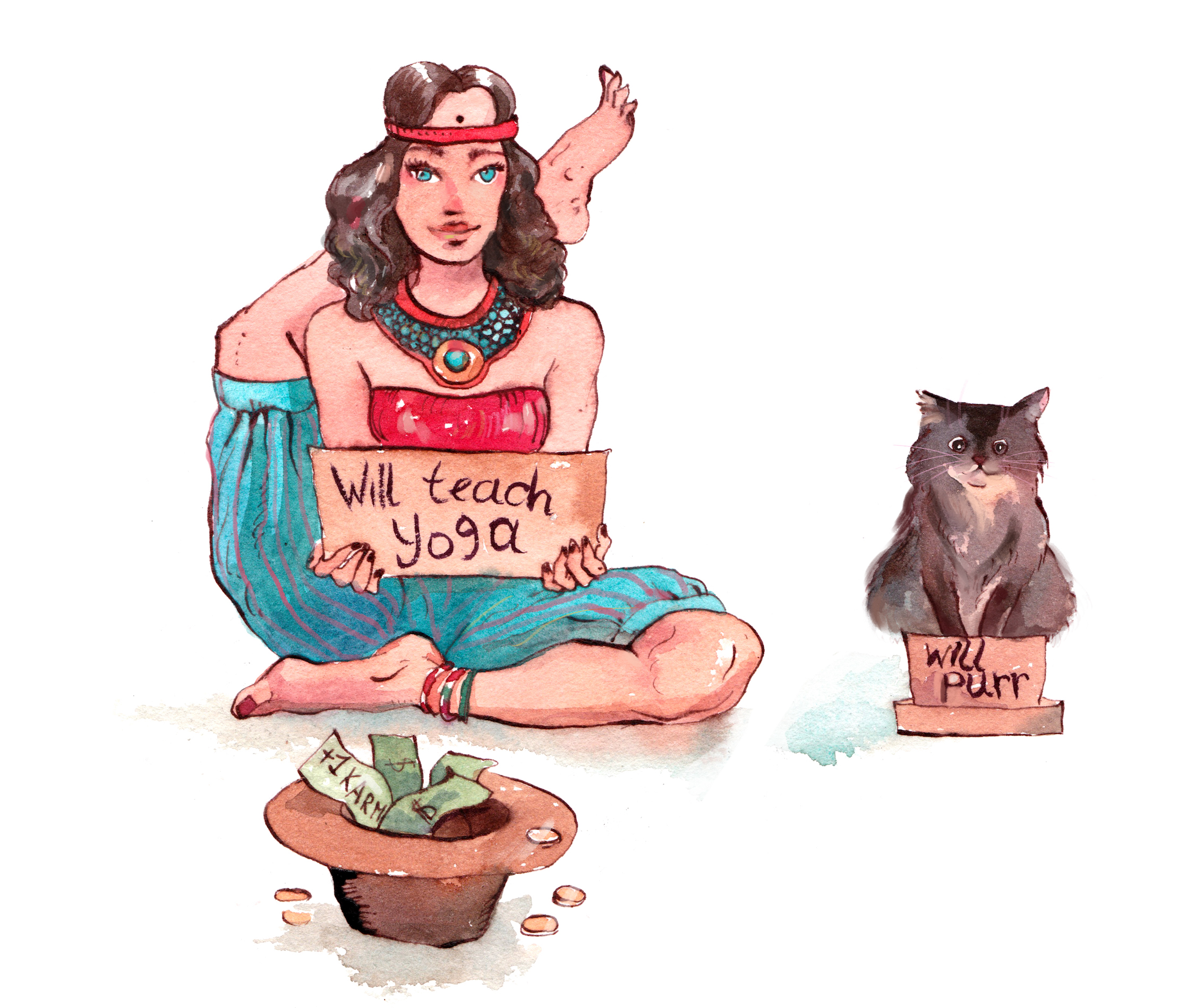Most people do not get into yoga for the money, despite the industry being worth over 10 billion dollars in the US. Becoming a yoga teacher requires an incredible amount of dedication and costs, including monetary and personal. Yoga professionals are aware that a lucrative yoga market does not necessarily translate into a lucrative yoga career. In fact, many yoga teachers have, at some point, worked for free. In an industry that has exploded in the past five years, and requires extensive training and dedication, why are yoga teachers willing to work for no monetary gain? Why don’t Yogis demand more?
1. We are driven by passion, not money.
Most people who work in the yoga industry may enter it out of passion, focusing more on the joy of actually teaching, practicing, and being involved in the yoga community than wealth. The connection to yoga is a powerful personal one, and the instructor wants to share that with others.
2. We are predominantly women, and we do more for less.
Another factor is rooted in the demographics of yoga: the majority of yogis are women. Women work for less pay, speak up less about pay inequalities, and do more work than male counterparts. In fact, women are more likely to work with unstable contract jobs and are more reluctant to ask for a pay increase or promotion. Bottom line – research has shown that women work for less money than men, and these societal roots may be growing into yoga.
3. We are honoring yoga philosophy by giving to others.
The Upanishads are ancient scriptures that discuss the concept of Karma yoga, or sacrifice through action. In the modern day, others may feel that they are acting in a selfless form of Karma yoga, using yoga’s own philosophy to explain working for less or nothing. Essentially, you are sacrificing your work for the perceived benefit of others.

4. We equate celebrity or notoriety to success.
The popularity of yoga in recent years has created a competitive yoga market. Developing a following via social media, including YouTube, Instagram, and Facebook, is commonplace for yoga teachers. The yoga industry has combined fitness industry and celebrity culture, promoted by social media outlets. The result? Many teachers are willing to work for free in the hopes of achieving success by creating a following or brand.
Should Yogis Work for Free?
As much as I would like to answer this question with an unwavering “NO”, I recognize that the situation is more complex than that. In a time of unpaid internships and people vying for exposure, I can’t knock anyone for try to get experience – in fact, many people do it in a way to pay their dues before getting a paid gig.
However, the amount of unpaid “work” in yoga is alarming, ranging from work trades abroad to promise of exposure through online websites – all without monetary pay.
Working without appropriate compensation affects not just you, but other people in the industry as well. When considering working for free in the name of experience and exposure may actually devalue the work that you do. This devaluing of work reaches far beyond the individual, affecting the overall industry.
Any time you enter an unpaid yoga relationship, be sure that you are gaining something for your time and finding a balance that works for you. Your time is valuable. You are valuable.
- You are gaining something that you want or improving yourself in some way.
Mentorships, internships, and work trades are becoming more and more prevalent. They aren’t a long-term solution, but they are a way to get experience.
- Find balance that works for you.
Finding balance in volunteering is vital. Note how many hours a week you are willing to dedicate.
- Set goals and expectations.
Settings goals and clarifying expectations is key to respecting your time and understanding what you really want to get out of volunteering.
- Give a bit. Just don’t give it all.
Volunteering is good. Not only are you giving back to a community in many cases, but this feeling can make you feel good about yourself as well. But volunteering doesn’t pay the bills. Use the previous three points to help find what you want, your balance, and short-term and long-term goals you have.
If you are in this situation or are considering working for free, reflect on this: Do you feel respected? Are you learning something?
If you answer no to either of these questions, I would leave and gain your experience elsewhere. If yes, consider staying – as long as it feels okay to you. But be aware that this is feeding into a larger social structure that promotes inequality. Respect yourself, what you do, and be true to who you are as a teacher, person, and student.
You are valuable, but will you demand and command others to see you the same? It is your call.

Illustration by Valeria Ko.
Enjoyed reading this article? Consider supporting us on Patreon or making a one-time donation. As little as $2 will allow us to publish many more amazing articles about yoga and mindfulness.


